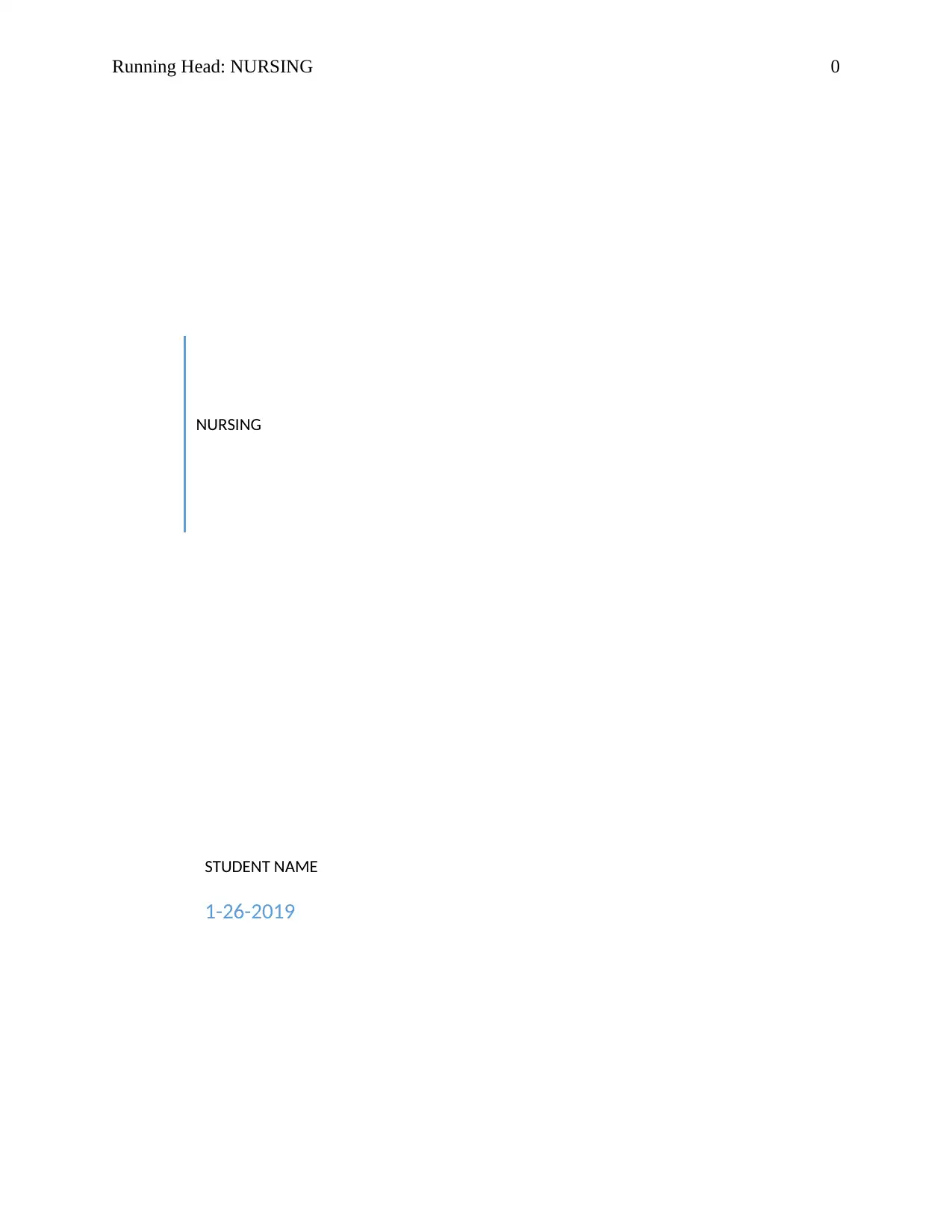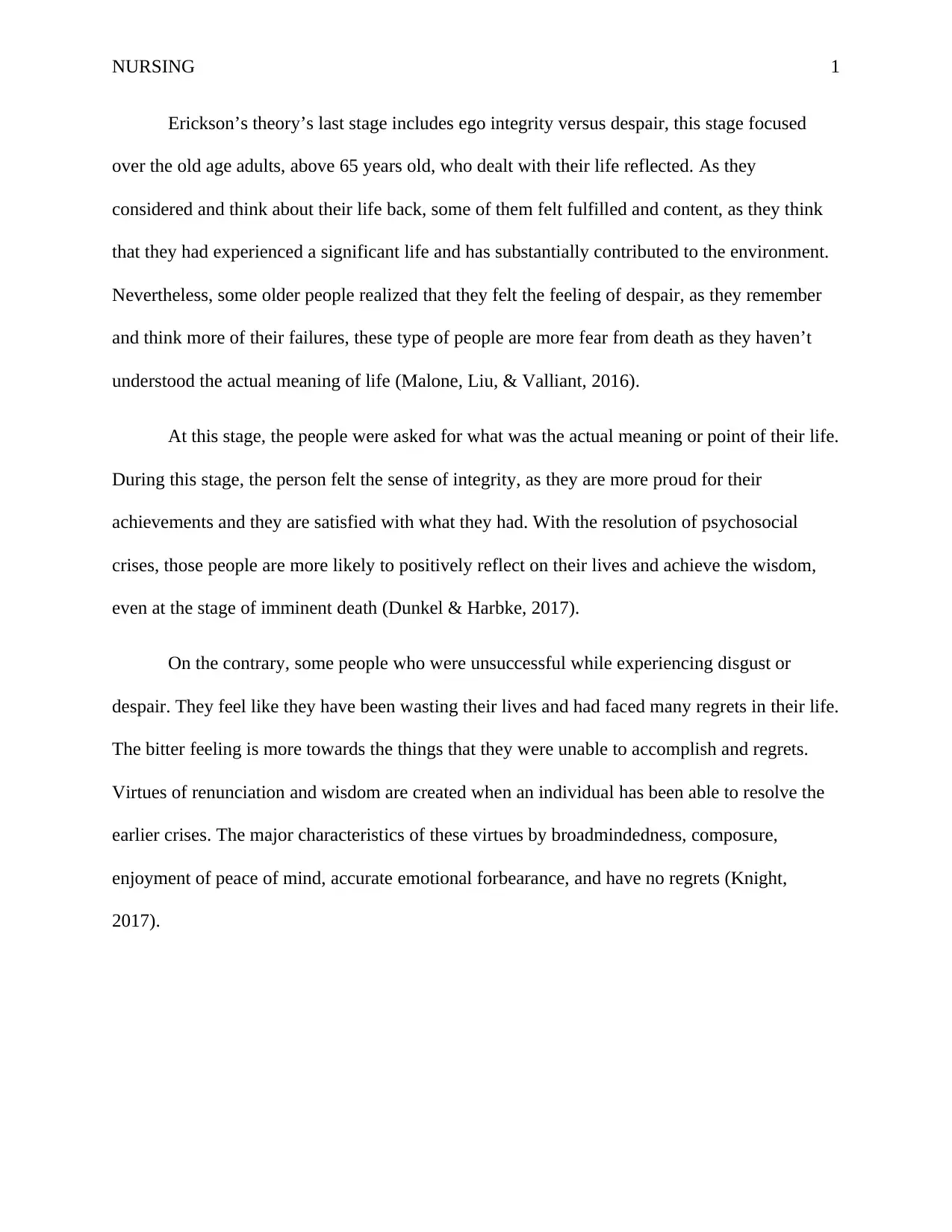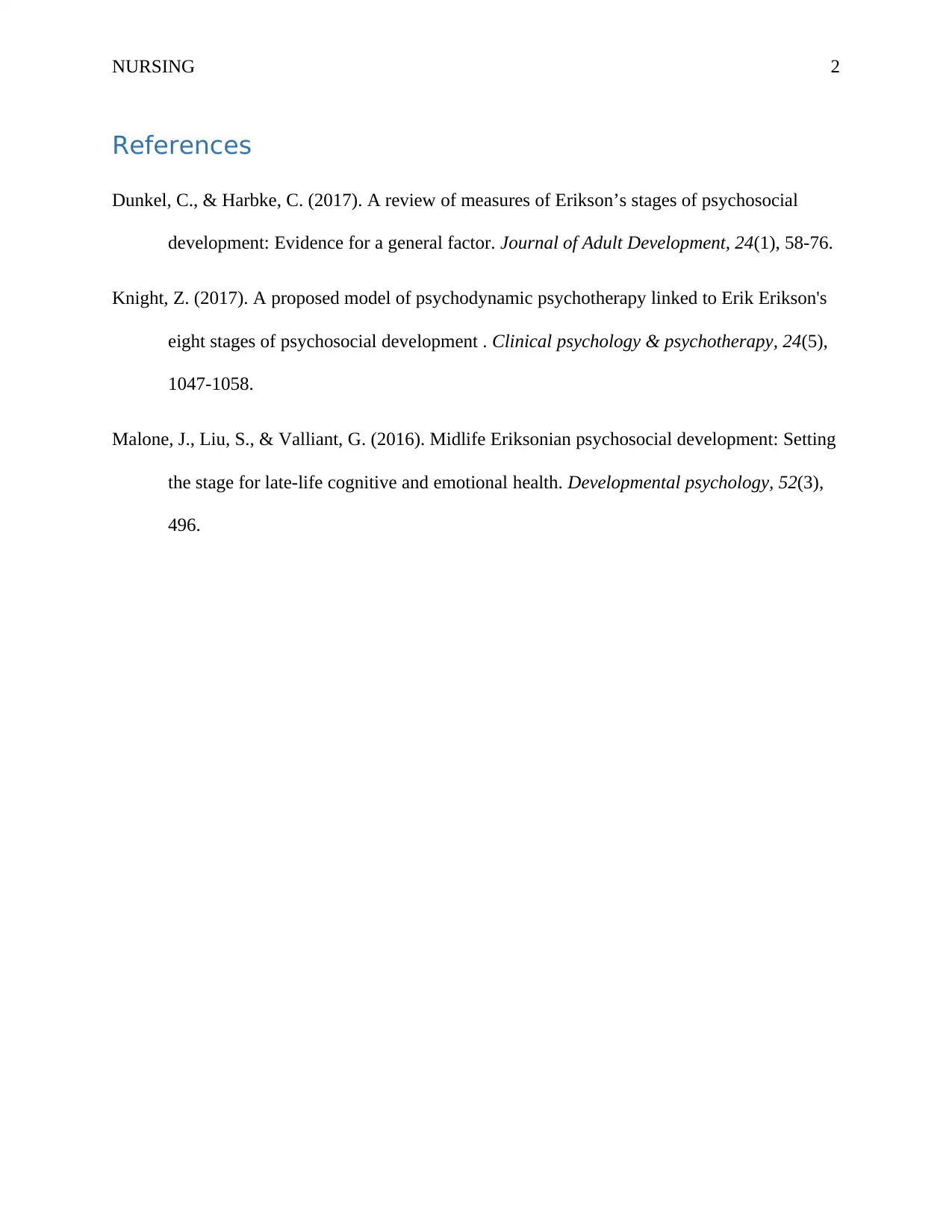N3325 Holistic Care of Older Adults: Ego Integrity Research (Erikson)
VerifiedAdded on 2023/04/25
|3
|447
|469
Report
AI Summary
This report analyzes Erikson's final stage of psychosocial development, ego integrity versus despair, focusing on its relevance to older adults. The assignment explores how individuals over 65 reflect on their lives, potentially experiencing fulfillment or despair based on their perceived accomplishments and regrets. It highlights the importance of life review in achieving a sense of completeness and wisdom, and the role of nurses in encouraging elders to share their experiences. The report references key concepts such as virtues, psychosocial crises, and the fear of death, providing a comprehensive overview of Erikson's theory and its practical applications in gerontological nursing. The provided references support the discussion with relevant research and analysis on the subject.
1 out of 3








![[object Object]](/_next/static/media/star-bottom.7253800d.svg)